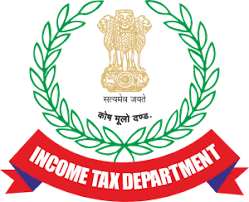The Income Tax Appellate Tribunal, Chennai in its recent ruling in the case of Shri P.S. Jayaraman v. ACIT has held that mere making of claim would not attract income tax penalty u/s. 271(1)(c) of the Income Tax Act, 1961.
The appellant Shri P.S. Jayaraman earned capital gain by selling land and claimed exception therefrom under section u/s. 54F (deduction for investment in residential house) and 54EC (deduction for investment in capital gain bonds) of the Income Tax Act, 1961 by making three investment in REC Bonds considering three sale transactions of land. The assessement was completed on 27-03-2014 under section 143(3) of Income Tax Act. Assesee claimed the exemption u/s. 54EC was for Rs.100 Lakhs. But Assessing Officer found that the land sold was one and therefore, the exemption would be allowable only to the extent of Rs.50 Lacs.
Thereafter the order was appealed by appellant before the CIT (A) wherein the deduction claimed u/s 54EC was confirmed and deduction claimed u/s 54F was partly allowed along with imposing fine of Rs 39.99 lakhs for concealment income and furnishing of inaccurate particulars of income. Against the order of CIT (A) assesse filed an appeal before the ITAT.
Before ITAT, the counsel for assessee submitted that, mere making of claim under section 54EC of Income Tax, Act which was partly accepted do not call for levy of penalty. “Deduction u/s 54F was solely due to difference in interpretations of the provisions and therefore, the penalty was not to be levied on this count”.
The representative of Revenue on the other hand contented that the claim was not made in accordance with law.
The Division Bench Mahavir Singh, Vice President and Manoj Kumar Aggarwal, Accountant Member while referring to judgment of Hon’ble Supreme Court in the case of CIT V/s Reliance Petroproducts Pvt. Ltd. (322 ITR 158) allowed the appeal filed by the assessee and held that mere making of wrong claim do not amount to furnishing of inaccurate particulars of income. In the absence of finding that any details supplied by the Appellant are incorrect or false, penalty could not be levied.
ITAT further held that AO must prove that there was concealment of income or return of income furnished by the assessee or the document submitted by the Appellant were based on incorrect fact, falsity and untruth.
READ / DOWNLOAD ORDER
***
Don’t miss the next GST Update / Article / Judicial pronouncement
Subscribe to our newsletter from FREE to stay updated on GST Law
Resolve your GST queries from national level experts on GST free of cost
Frah Saeed is a law graduate specializing in the core field of indirect taxes and is the Co-founder of taxwallah.com. She has authored many publications on GST and is into full-time consultancy on GST to big corporates. She as a part of taxwallah.com heads a team comprising of Chartered Accountants and Advocates and plays a key role in our mission to disseminate GST knowledge to all.



